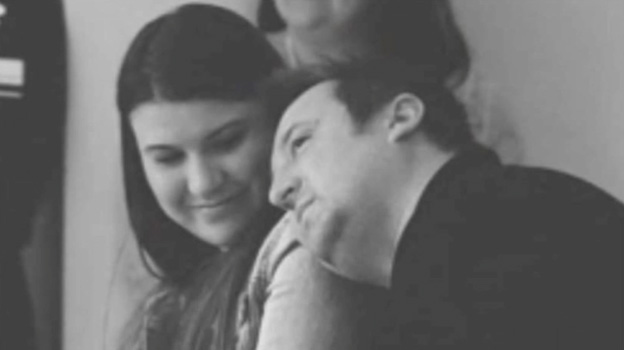CKD: Emotional Roller Coaster
Kidney Disease
Transcript
Steve
Mental health is so extremely important because your mental health has so much power and control over how you tackle this disease, over how you progress through it, how your journey’s going to ultimately end. And so, to me mental health is one of the most important things that who you are and what your body has to get you to a better place. And that’s why you have to always make sure it’s in tune and you have to keep track of it.
Once you hit the dialysis stage, my goodness. The mental part of the disease it overtakes you. I was very blessed that it took 14 years for me to get to that point. But it still hurt so badly. I will never forget my first in-center dialysis session. I remember it felt like I had been convicted, that chronic kidney disease had found me guilty, and I had to report for my sentencing. It was foggy outside, and it was raining. It was one of the most miserable mornings that you – I could’ve had leading to where I was going. And so, I did. I reported and I had to turn myself in. I told them my name and they had me sit in this waiting room that was all white. It was white tile, white walls, a white ceiling. And the part that was really difficult is it was quiet. It was so quiet in the waiting room. I remember the door opened and the lady said Mr. Winfree? And I’ve never hated hearing my name more than I did at that moment. And I stood up, I walked in. And there it was, the beeping noise, the sounds. And it was dead quiet in there. These people are all connected to a machine and if they weren’t they wouldn't be alive right now. And that really, really scared me because I was young. I was 32 and there was – I was the youngest one there. I remember I looked at that machine and I said to myself I hate you, but I also love you because you’re keeping me alive right now and because you’re doing your job, I get to go see my best friend when you’re done. And I tried using that rationale. I went through the stages of grief with a machine. I negotiated with it. I got mad at it, and I got angry, I got sad, and that was all within my first appointment. I felt all of these emotions and sadness and hurt, not just from the dialysis itself with the needles they put in but mentally it hurt, emotionally it hurt because I remember curling up in a ball and saying this is my life, this is miserable, and I just want to go home. I want to find my wife. I don’t want to be here. And at the end, they say, all right, we’ll see you again in two days. And you go home and all – you feel horrible. But then the emotions kick in and it never left me, the emotional part. As you can see, it’s still with me. Sorry.
People ask me all the time how happy were you when you found out you didn’t have to dialysis anymore and you were going to be a transplant patient. And I always explain to them it didn’t go how you might have thought. When I left that room for the last time, I went out to my car in the parking lot, and I sat there for a good 15 minutes. And, again, I remember I just started crying. And I feel so guilty that I am a free man. I was one of the very few that gets chosen to have a transplant and all of my friends in there are still suffering. Like why was it me that was picked to get a transplant? Why not one of them? Why not somebody who’s been there long – longer? And it was very overwhelming. I'd never felt that kind of guilt. And so, it definitely didn’t go as you would expect.
The first thing that I would tell any patient, I would say find a support person or a support group who lets you be sick. And what I mean by that is you don’t always as a patient want to hear, oh, you’ll be fine, oh, you’re strong, oh, you’re tough, oh, you’ll be okay. We know why they’re saying it. But there are times where you just want to vent and you want to scream and you want to cry and say I don’t feel good, I'm angry at this disease. Find that person that can allow you to express yourself and be sick. Allow yourself to be okay to be sick is the number one thing that I tell any patient that does approach me with that question.

Comments (0)
Add new comment